Physics
Sign up for our newsletter
We summarize the week's scientific breakthroughs every Thursday.
-
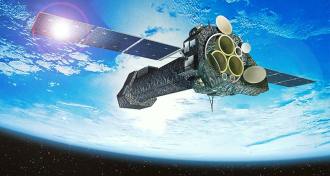 Cosmology
CosmologyDebate grows over whether X-rays are a sign of dark matter
The dwarf galaxy Draco, which is chock-full of dark matter, doesn’t emit a band of X-rays that researchers hoped were produced by the mysterious invisible stuff.
By Andrew Grant -
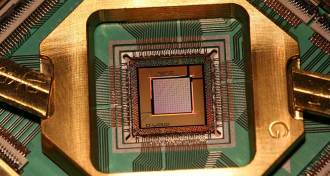 Quantum Physics
Quantum PhysicsGoogle’s quantum computer speeds up, but practical use is unclear
Google’s D-Wave quantum computer is getting faster, but it’s still unclear whether it will ever outperform regular computers at completing useful tasks.
By Andrew Grant -
 Chemistry
ChemistryElusive chemical reaction transition state captured
A new method provides a detailed look at the elusive transition state.
-
 Physics
PhysicsThere’s no hiding from new camera
A new camera tracks objects hidden around a corner by detecting light echoes, similar to the way bats use sound to find prey.
By Andrew Grant -
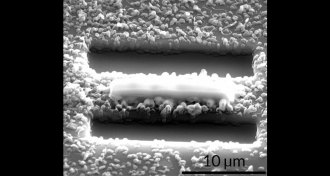 Chemistry
Chemistry‘Q-carbon’ may offer quick route to diamonds
Q-carbon might be the third form of solid carbon, but some scientists have doubts.
By Meghan Rosen -

-
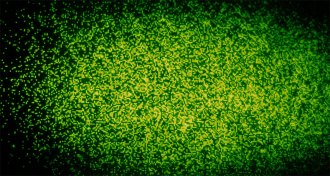 Quantum Physics
Quantum PhysicsSpooky quantum connection quantified for multiple particles
Physicists have measured quantum entanglement between several particles rather than just two.
By Andrew Grant -
 Physics
PhysicsMaxwell’s demon faces the heat
A device inspired by an 1867 thought experiment fails to break the second law of thermodynamics, which governs the flow of heat and the drive toward maximum disorder.
By Andrew Grant -
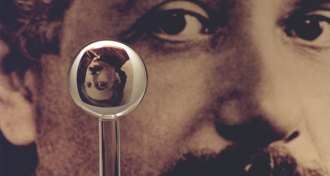 Physics
PhysicsFinal chapter published in decades-long Gravity Probe B project
It took more than 50 years, but an experiment testing general relativity has finally come to a close.
By Andrew Grant -
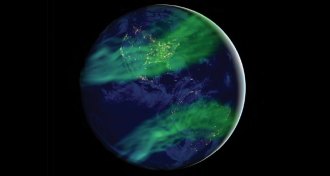 Earth
EarthDon’t flip out: Earth’s magnetic poles aren’t about to switch
Earth’s waning magnetic field is returning to its long-term average, not heading toward a catastrophic magnetic reversal, new lava analysis suggests.
-
 Planetary Science
Planetary ScienceBright minds, antineutrinos and more reader feedback
In the November 28, 2015, issue of Science News, readers discussed humanizing science, frog mating calls, antineurtrinos and Martian dust storms.
-
 Quantum Physics
Quantum PhysicsMore tests confirm quantum spookiness
New experimental results confirm and strengthen evidence for the “spooky” reality of quantum physics.
By Andrew Grant